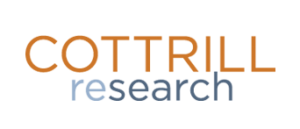As important as it is to identify and research supply market intelligence resources of value, it is equally, if not more important to know how to capture the intelligence gathered so it can be later accessed and/or shared with team members. The process of identifying and capturing information for later use and/or for sharing is most commonly known as Knowledge Management (KM). Most organizations understand the importance of implementing KM processes. It is understood that capturing knowledge ensures that it does not “walk out the door” when employees leave and that recreating the research wheel over and over again is not an efficient use of time nor resources. This understanding leads to actual processes being developed and implemented in organizations of all sizes. But often times the enthusiasm for maintaining these KM initiatives deteriorates as daily, more time-critical, responsibilities pop up that demand our immediate attention. Thus KM eventually gets designated to low priority status. A new mindset is required to change the way KM is perceived and ultimately implemented. First of all, it is easy to think of KM as kind of an afterthought that is performed after the research is completed and the intelligence brief has been written. A correct way of implementing KM is ensuring that its processes and activities are baked into and performed as part of, and alongside, the active research gathering, analysis and documentation processes, so when the research effort is completed, so is the KM component. How can this be done? Being a successful researcher means that you handle the resources, and your time with the resources, in an efficient manner. When researching, it is good practice to document as you go. It is much more efficient to document a possible source before moving on to the next one than it is to relocate that source later. This activity of documenting, is at the same time, creating a KM depository. The links that were not used, or ultimately deemed not worth keeping, can be easily deleted, thus leaving a collection of links and documents (in addition to the intelligence brief), that can be accessed, shared and used later. I have started using a tool that easily enables you to document as you go when researching.
Kifi was launched in 2012 and is a tool designed for capturing, annotating, organizing and sharing both personal and team-wide information. Kifi allows you to save information via libraries that you create. Creating a new library is easy. You select the Create A Library option, then type in the name of the library, the location where it should reside, and select either public or private access.
As you are searching, and you find a site that has useful information you would like to keep and/or share, you simply hover over the Kifi button, which always appears on the lower right side of your screen. You select “Keep it,” and your list of libraries appear. Next, select the correct library where the link is to be housed. You can search within libraries for easy retrieval.
To add a Team, you select the “+” option in the right upper hand of screen, then choose a name and select “Create Team.” To add a library, there are three privacy options: 1) Public, anyone can see and follow the library, 2) Team, only members of the team can see the library, and 3) Private, only people you invite can see the library. Kifi understands the important role that collaboration among team members plays in KM and provides features that give members the ability to add notes and tags to keeps. Also, members can annotate keeps and highlight sections of text that are important to teams. Kifi also integrates with popular messaging app Slack.
Another interesting feature is that your Kifi keeps show up at the top of your Google search results. For example, below you can see my Kifi keep on global and emerging logistics hubs, which appears at the top of my returned results for the search “logistics hubs.”
Kifi pricing:
Kifi’s free pricing option includes unlimited keeps, unlimited public libraries, 10 team visible and private libraries, 2 Slack integrations, Google search and Twitter service integrations, unlimited messages in chats, free native apps for iOS and Android, Chrome and Firefox extensions, and imports from major bookmarking services and browsers. The next pricing option, Standard, provides additional features and is $6.67 a month per user per month billed annually ($8 billed monthly). Enterprise pricing is the third option and is not listed.
Conclusion:
By building libraries via collaborating with team members, or creating your own libraries for research you are performing, Kifi is a valuable tool for activity or project-driven knowledge management.


